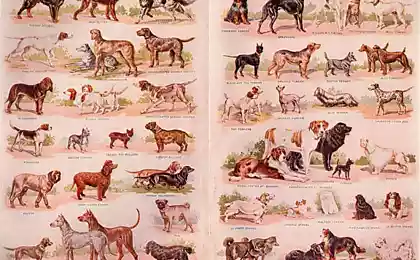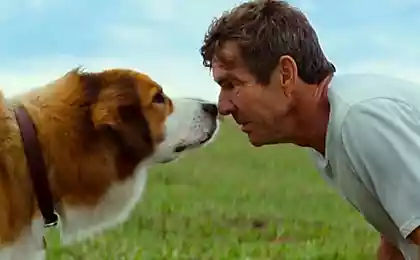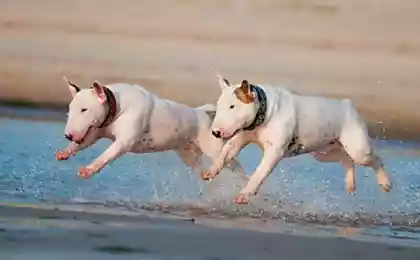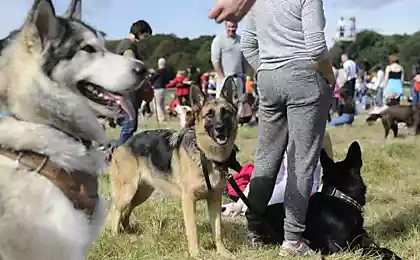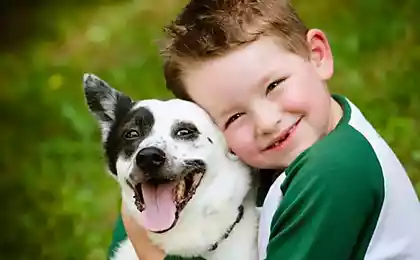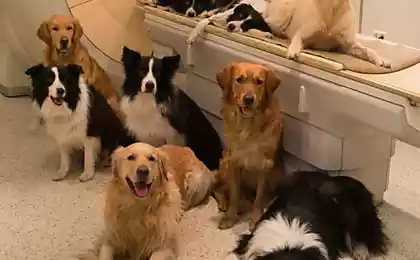248
Why Dogs Have Behavior Problems
Every dog owner knows that this is not always easy. Sometimes animals spoil your things, bark for no reason, and hurt you. Many people say that this dog is just a character and there is nothing you can do. However, behavior problems in dogs do not arise from scratch, there is always a well-founded cause. And we'll talk about that today.

Editorial "Site" Vitaly Kononova, founder of the Animal’s Speaking Club project, is created to help animals and their owners understand each other better. Today we’re going to talk about why dogs do this. behavioral problems and what to do about it.
If you have ever faced behavioral problems in your animals, you probably wondered “why?”, and in especially severe cases, “for what?” (here, of course, it is better to translate this into philosophical “for what?” and engage in step-by-step solution of the problem). But today I propose to find the answer to the first question.
Any responsible and loving dog owner knows that problems do not arise out of the blue and do not happen because the animal is “harmful”. Each problem has its own cause, and it is with finding it that we begin our path of behavioral correction. After all, there is no point in fighting the symptom, it is better to find and eliminate what causes its manifestation. Let’s take a look at the top 10 causes of problematic behavior in animals.
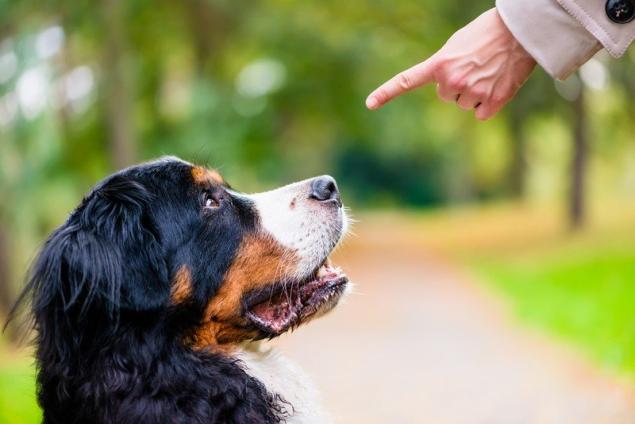
DepositPhotos
The causes of problematic behavior are much more than ten. There are different nuances and individual cases that need to be dealt with individually. If you are interested in learning more about animal behavior, if you want to better understand your pet, then be sure to check out Animal’s speaking club. There's a lot of interesting information!
Are you still thinking about getting a dog and which one to choose? Then our material about which breeds of dogs feel great in the apartment and will become the best pets will help you.
Useful article? Share it with your friends!

Editorial "Site" Vitaly Kononova, founder of the Animal’s Speaking Club project, is created to help animals and their owners understand each other better. Today we’re going to talk about why dogs do this. behavioral problems and what to do about it.
If you have ever faced behavioral problems in your animals, you probably wondered “why?”, and in especially severe cases, “for what?” (here, of course, it is better to translate this into philosophical “for what?” and engage in step-by-step solution of the problem). But today I propose to find the answer to the first question.
Any responsible and loving dog owner knows that problems do not arise out of the blue and do not happen because the animal is “harmful”. Each problem has its own cause, and it is with finding it that we begin our path of behavioral correction. After all, there is no point in fighting the symptom, it is better to find and eliminate what causes its manifestation. Let’s take a look at the top 10 causes of problematic behavior in animals.

DepositPhotos
- Lack of physical activity
Dogs need physical activity. If you take a dog and walk with it twice a day for 15 minutes, then a chewed sofa will be a logical consequence of this lifestyle. Walk with the dog, play with it, take with you if possible for summer evening walks. In total, you should walk at least two hours a day. The exact time will vary depending on the dog’s age, breed and temperament.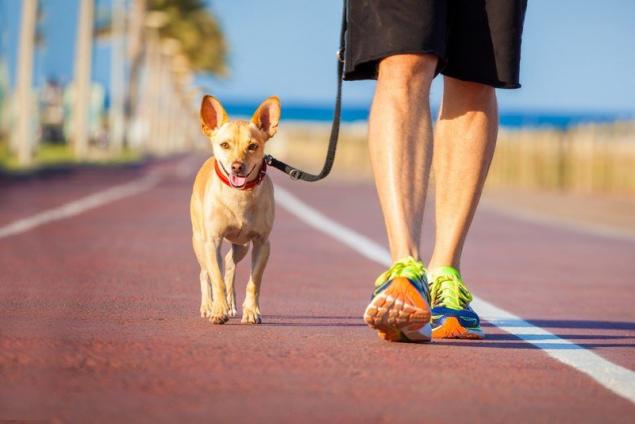
DepositPhotos - Lack of intellectual loads
Along with physical activity, the animal also needs intellectual. It is very important to give the dog the opportunity to think and solve tasks. If you think for a second about how wild animals (the same dogs) live, you will understand that they have to solve a lot of vital and to some extent interesting tasks throughout the day: it is necessary to find food, prevent and resolve conflicts in the flock, get acquainted with new representatives of their own and other species, find a sexual partner, raise offspring, monitor the integrity of their territory.
Our pets are not allowed to do many of these things. On the one hand, this is good, because we cover all the necessary needs for them, but on the other hand, it very impoverishes the brain function that every dog needs.
In order to close this need, you can play intellectual, search games, train on positive reinforcement, offer more and more new tasks, learn tricks and much more.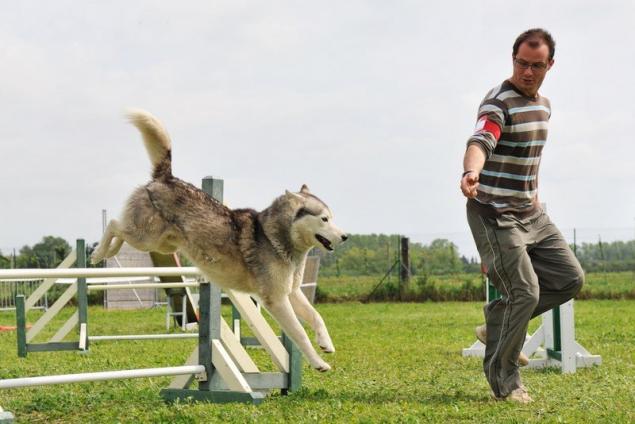
DepositPhotos - Health problems
Very often the cause of sudden bad behavior is a disease. If the dog is sick, it becomes more irritable, may show aggression, excessive arousal, or, conversely, refuse to engage and not go into contact. In many cases, the physiological cause is intertwined with the behavioral cause. However, if we do not solve the first, then there is almost no point in working on the second. So, in the case of uncleanliness, where the main cause is cystitis, we can do any behavioral correction, but it will not bring results because the dog is sick.
For some reason, recommendations for visiting a veterinarian are the most difficult for some owners. However, you should remember that the examination of an animal is one of the first actions that must be done before the beginning of behavioral correction. Don't forget to support. healthprevent possible diseases and periodically visit a veterinarian for a general examination.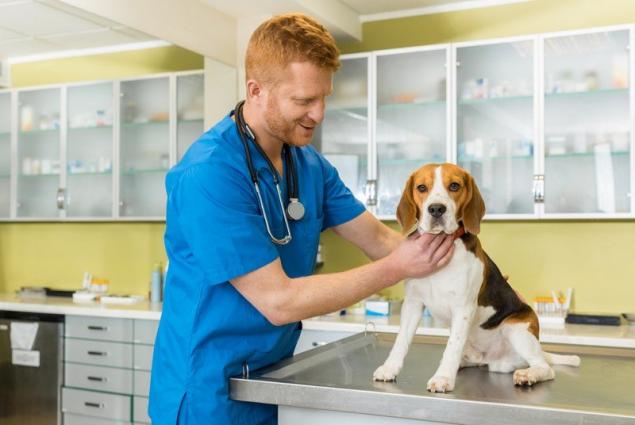
DepositPhotos - Genetic predisposition
Genetics is such a deep topic that we can talk about it endlessly. However, in the context of the issue we are discussing, we can point out that the propensity for certain behavioral problems can indeed be genetically transmitted. For example, if you took a toy terrier from a dysfunctional kennel, where all the dogs from generation to generation lived in small cages and went to the toilet almost where they slept, then the dog may have a genetic lack of aversion to sleeping in the smell of their urine. Therefore, to pee in your bed, and then go to bed there, it will be quite normal for her. This problem is much more difficult to deal with, but it is also possible.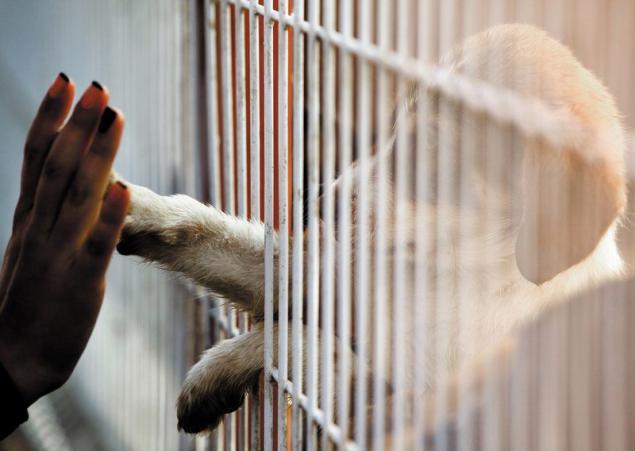
DepositPhotos - Duality in education
If you allow your dog to jump when you’re wearing homemade or athletic clothes, but you insist that it doesn’t jump when you’re in an evening dress or business suit, it’s not clear to the dog what the difference is between the two situations. If you want, you can train her to a permitting team when you don't mind jumping and hugging and stopping. This will be understandable consistent training and will not put the dog in a stupor.
The same goes for begging at the table. If you treat the dog, then scold, so you take away from the animal one of the important components of his happy life – predictability.
In the absence of predictability (especially from the owner), the dog will become more anxious, and you will feel a loss of confidence in yourself. It is very important to be consistent in your actions and to monitor your own reactions to the same actions of the dog.
DepositPhotos - Change in habitual lifestyle
Any change for the dogs and for us is stressful. A change of residence, completely unfamiliar places to walk with new people and dogs, a change in your work schedule, the appearance of a new pet or child in the house – all this can increase the level of arousal in the dog, cause anxiety and temporarily reduce the level of obedience. During this period, it is important to support the animal, praise it for its initiative in exploring new objects and try to regain a sense of security and predictability as quickly as possible.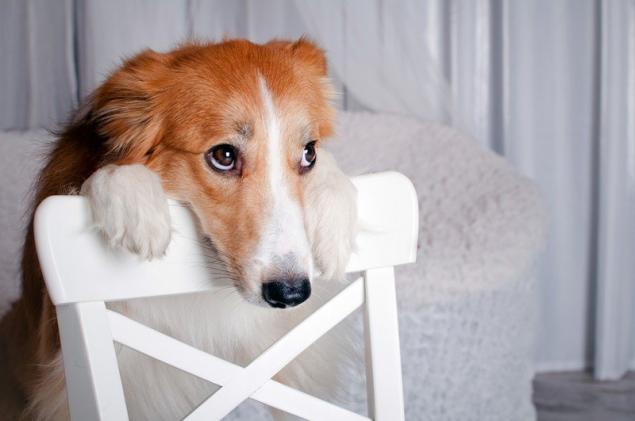
DepositPhotos - Poorly formulated ration
We must always remember that nutrition is one of the most important factors influencing behavior. Excess weight can lead to overexcitation, and this, in turn, to exacerbate existing problems. A lack of nutrients will lead to selection from the ground, and an incorrectly composed diet as a whole will lead to diseases. If a dog is sick, it becomes more irritable and has a reduced quality of life in general. It is always better to consult with a good veterinarian to make the right diet for your dog.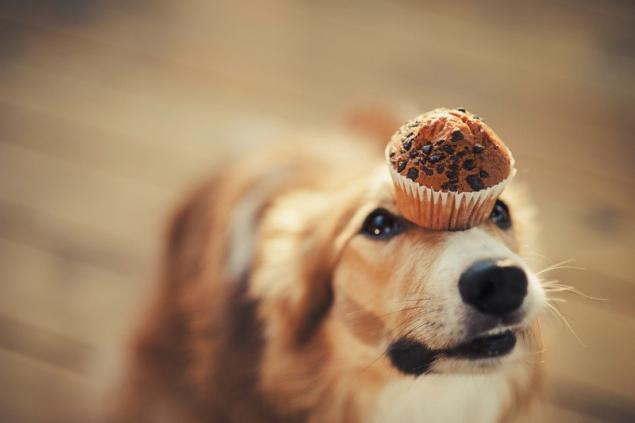
DepositPhotos - Inadequate socialization
From about 3 to 16-18 weeks, the puppy undergoes a period of socialization. At this time, it is very important to introduce him to different people (different ages, figures, gender), animals (dogs, cats, horses), objects (bicycle, TV, etc.), sounds. The puppy must gradually learn what life around him is made of and have a positive experience of interacting with every element of the system. Positive experiences are very important, because negative experiences can be just as well entrenched in his memory and then it will be difficult to change associations.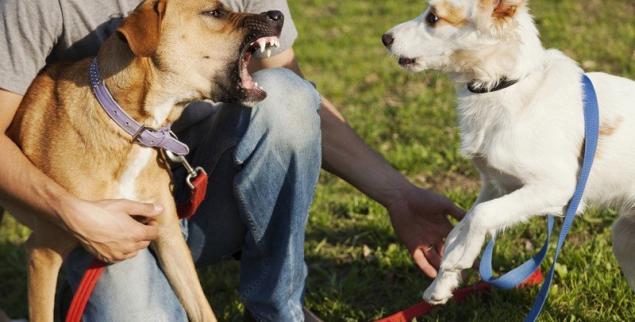
DepositPhotos - The onset of the period of fear
From about three months, the puppy has an age of fear. You may be surprised that yesterday he happily ran with you for a walk, and today, more than ever, careful and does not want to go far from the entrance. Don't worry too much about that. Keep walking, reinforce the initiative of the puppy, do not scold. This period will end as naturally as it began.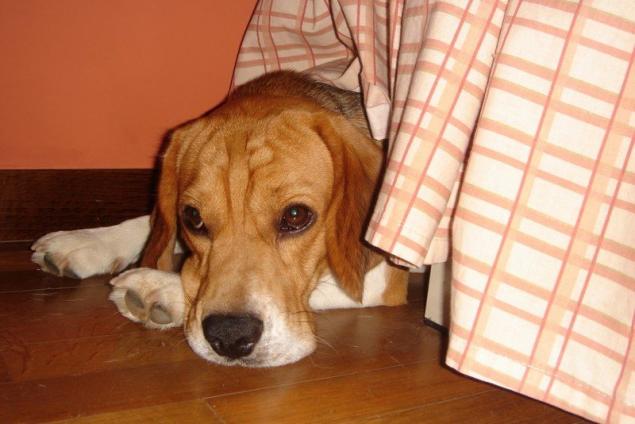
DepositPhotos - Manifestation of normal typical behavior, which is treated as problematic
It is natural for a dog to bark, tag, fall out in a cadaver smell, hunt other animals. Of course, depending on the breed of the dog and on its genetic predisposition, all this will manifest itself to varying degrees or not at all. You need to understand when it comes to "failure" in behavior, and when the dog just behaves in a natural way for her and sees no problem in it. Of course, this does not mean that you should not do anything with the fact that the dog happily marks the shoes of all guests who come to the house (which often happens in primitive breeds).
However, often the best way out of this situation is to get yourself a closet for shoes and invite guests to leave their shoes and boots there. Or get a pair of discount coupons from the nearest shoe store and give them to everyone who forgot to put the shoes in place.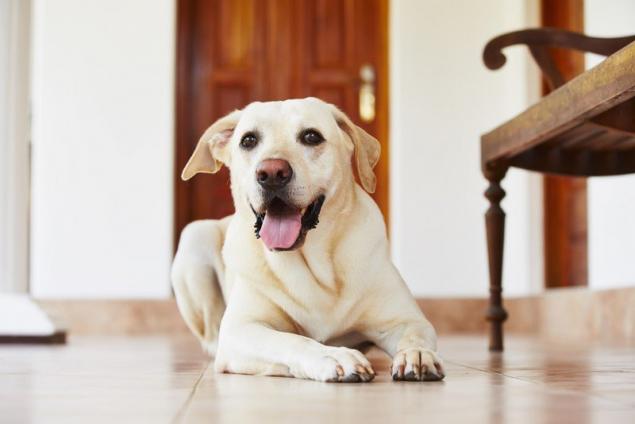
DepositPhotos
The causes of problematic behavior are much more than ten. There are different nuances and individual cases that need to be dealt with individually. If you are interested in learning more about animal behavior, if you want to better understand your pet, then be sure to check out Animal’s speaking club. There's a lot of interesting information!
Are you still thinking about getting a dog and which one to choose? Then our material about which breeds of dogs feel great in the apartment and will become the best pets will help you.
Useful article? Share it with your friends!











